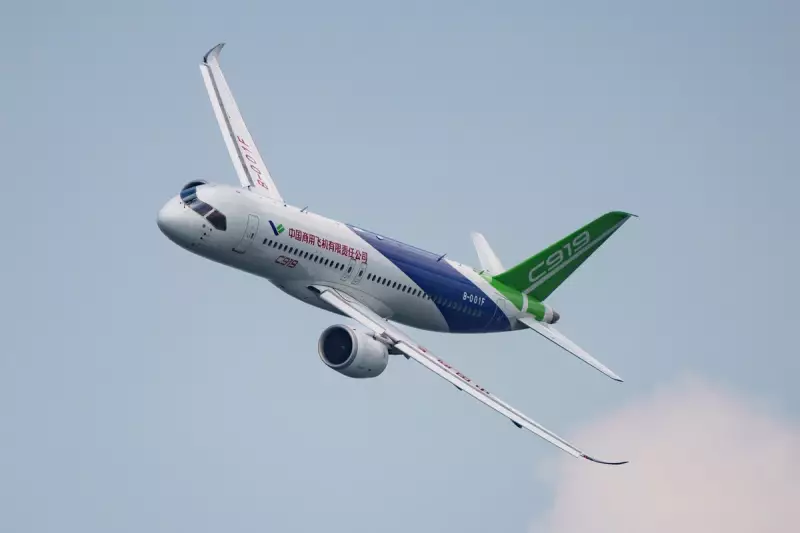
In a strategic move reshaping global aviation dynamics, Air China has confirmed a monumental order for 100 Airbus A320neo aircraft, dealing a significant blow to American aerospace giant Boeing in the intensely competitive single-aisle jet market.
Landmark Deal Signals Strategic Shift
The state-owned carrier announced the firm order through an official filing with the Hong Kong stock exchange, revealing plans to acquire 64 A320neos and 36 of the larger A321neo variants. This substantial commitment underscores Air China's confidence in Airbus's fuel-efficient narrow-body family as the cornerstone of its future fleet expansion.
Competitive Implications for Boeing
This decision represents a notable setback for Boeing, which has historically maintained strong ties with Chinese airlines. The timing is particularly challenging as Boeing continues to navigate production issues and regulatory scrutiny surrounding its 737 MAX series, while Airbus strengthens its position in the world's fastest-growing aviation market.
Industry analysts note several key factors influencing this decision:
- Superior fuel efficiency of the A320neo family
- Airbus's proven delivery reliability and production consistency
- Growing preference for commonality within airline fleets
- Geopolitical considerations affecting US-China trade relations
Fleet Modernisation and Expansion Strategy
The new aircraft will primarily serve Air China's expanding domestic and regional route network, replacing older, less efficient models while supporting the airline's ambitious growth targets. The A320neo family's enhanced range and payload capabilities offer greater operational flexibility across China's diverse route structure.
"This order represents one of the most significant single-aisle aircraft commitments from a Chinese carrier in recent years," noted an aviation industry expert. "It clearly demonstrates Airbus's growing dominance in the Asian market and poses serious questions about Boeing's competitive positioning moving forward."
Market Reaction and Future Outlook
The announcement has generated considerable discussion within aviation circles, with many observers watching how Boeing will respond to this competitive challenge. The deal not only strengthens Airbus's market share but also potentially influences future purchasing decisions by other Chinese carriers evaluating their fleet renewal strategies.
As global air travel continues its post-pandemic recovery, major aircraft orders like this one serve as crucial indicators of airline confidence and strategic direction in the evolving commercial aviation landscape.





